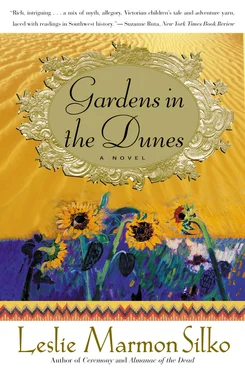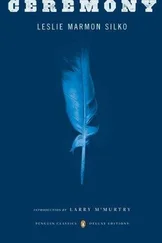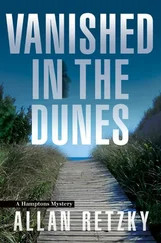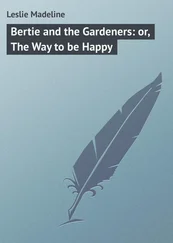They moved the camera methodically from stall to stall to photograph the goods for sale. Edward gave the cabin boy centavos to hand out and the odd silence shifted into a low murmur as the Indian women gathered to compare coins, faces still hidden by their shawls.
By midafternoon the local varieties of maize and beans and other market produce had been well documented with photographs, and the specimen bag was full. Edward had just begun to remove the lens board from the camera when he noticed activity outside the stall with the chunks of meteorite ore. A large figure wrapped in a bright red shawl disappeared inside the iron bar gate. Edward hurriedly repacked the camera and sent the cabin boy ahead to the steamer with the equipment while he went to inquire about the purchase of the meteor irons. Recently there had been a great deal of excitement among archaeologists after a meteorite shaped into a frog was found atop the big pyramid at the Maya ruins of Cholula.
He knocked politely but the figure in the red shawl was nowhere to be seen. He became concerned about the lateness and the departure of the steamer, so he knocked a bit harder. The corrugated steel sides of the stall shook. Suddenly a huge blue face appeared in the window and Edward could not help but jump back. The old woman’s long tangled hair and her ample chest and arms all had been painted a bright blue that emphasized the woman’s Maya features: sharp high cheekbones and aquiline nose. Her glittering black eyes fastened on his, and he felt beads of sweat form above his lip and across his forehead. He pointed at the meteor irons on the ground by her feet.
“How much for these?”
The woman stared at him until he had to look away. He saw the black skin of her legs and realized the woman was African as well as Maya.
“Oh, it’s you,” she said. “Go away, I’m closed.” The tone of contempt in her voice astonished Edward.
“I’ll buy all the meteor irons you have,” he said as he reached into his specimen satchel for his purse. She leaned her blue face and breasts closer; he felt the heat of her breath and instantly a terrible dread swept over him as if he was in imminent danger.
“Go away! You cannot buy them but you will pay!”
Had she misunderstood him? He held out a handful of silver coins to show her he wanted to buy the irons. She hissed out the words again — go away! The sweat on his forehead felt cold and the hairs on his neck stood up. He got a sudden impression the blue-face woman knew him and she had hated him for a long time.
How silly, he thought later when he was safely in his cabin. He was pleased with the handsome melon specimen and the photographs; the visit to the Tampico market had been a success. He put the unpleasant incident with the Maya Negress out of his thoughts; there would be other opportunities to acquire meteor irons. The encounter only whetted his appetite.
At high tide the steamer departed, but they were under way only a few hours when the wind began to increase and the ship’s barometer began to fall. The whitecaps began to slap the sides of the ship and the captain attempted to outrun the storm by heading due north. The ship rolled and plunged as she circled, waiting for the storm to move. In more than thirty years on the Caribbean, the captain had not seen as many storms as there were this season, and all of the winds followed the same path out of the Bay of Campeche.
The wind howled and drove the rain relentlessly against the ship; on the third day the storm gave no sign of abating, and the sailors began to recount old stories about hurricanes that raged for weeks. Edward remained calm. A few years before, he had weathered a far worse storm on the return trip from the Pará expedition.
That time a sudden storm sprung up off the coast of Venezuela; he was convalescing from his injury, immobilized in his cabin alone. Wind-driven waves nearly swamped the ship; the terrified sailors cast overboard much of the ship’s cargo to buy the wind’s mercy, and all but two crates of the rare orchid specimens were lost.
The sailors believed the storm was the work of the Black Indian of Tampico, who kept two sets of altar saints, one for the day, one for the night. The ship’s barometer fell so far that they thought it was broken. Who or what had angered the Black Indian? Edward listened to the men and wondered if she was the same woman who refused to sell him the meteorites. They said she was a daughter of the African spirits and the Maya spirits as well. The sailors heard spirits in the high-pitched whine of the wind.
The Black Indian and her black dogs combed the beaches after big storms to collect the gold and other valuables from shipwrecks. Edward listened to the sailors’ comments with amusement. The seamen worked themselves into self-righteous anger: What fool had angered the Black Indian, prompting her to burn black dog hair and rum in a white bowl to call up the winds? No solution but to throw gold coins and valuables overboard. That’s what she wanted; gold floated to the shore for her.
Later, when they were alone, Edward asked the ship’s captain where in Tampico this Black Indian might be found. The captain had already finished the first bottle of wine and opened another. Her ugly mug was unmistakable — painted bright blue. Edward felt a chill run down his neck. He said nothing about his encounter with her lest they accuse him of bringing down the storm. He excused himself and returned to his cabin. To think that he had inhaled her hot breath reeking of rum!
The rain and wind were relentless, never increasing but never decreasing in velocity; like the other tropical storms this season, it seemed to stall in Campeche Bay. The vessel was in a protected anchorage but they were unable to move. The first mate poured holy water as the ship’s captain threw handfuls of gold beads overboard; for good measure, the sailors dumped two palletloads of bananas. The wind seemed to slacken somewhat.
Edward took no chances this time; he kept his trunks and chests full of specimens safely locked in his cabin. The relentless howling of the wind brought on a deafness in his right ear, an affliction Edward first suffered in childhood after swimming in the ocean with his father.
The next morning the sky was blue and the ocean calm as if there had never been a storm. Edward took the opportunity to collect specimens of kelp and seaweeds churned up by the storm before the steamship got under way. As he filled the bottles with salt water and strands of seaweed, he felt a bit more confident the expedition was not entirely wasted; he could not afford to return empty-handed.
Perhaps it was the strain of this worry that triggered the headache that descended on him as he hefted a bucket of kelp and ocean water onto the deck. With the sudden sharp pain over his left eye came a blinding streak of light. He was scarcely able to stopper and label the collection jars before he began to perspire and feel nauseous from the pain over his eye. The headache lasted for two days. The ship’s captain sent the steward to administer belladonna, and at one point, the pain was so excruciating Edward begged the steward to put him out of his misery with an overdose. Now as he described the incident to Hattie, he laughed, but Hattie noted the hesitation in his voice. In the fury of the headache he became so disoriented, he believed he was back on the Pará River.
♦ ♦ ♦
“I could smell the burning foliage. I could even feel the broken bone fragments in my leg.” Edward took a sip of wine and settled back in his chair across from Hattie.
“At one point, I even imagined my father was in my cabin, smoking a big cigar and laughing at me!”
Hattie smiled. She enjoyed Edward’s animated mood. She put a light shawl over her shoulders and they strolled the west terrace arm in arm without speaking. The scent of citrus blossoms suffused the night air and overpowered even the white climbing roses and the lilies. No need to plant scented gardens here, though after a time, one became accustomed to the orange and lemon blossoms. She wanted to plant a garden of scents to contrast the heavy sweetness: wild sage, coriander, basil, rosemary, scented geraniums, and catmint for a start. She saw so many possibilities for the gardens despite the neglect they’d suffered.
Читать дальше












